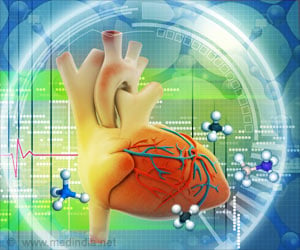It is extracted from the foxglove plant (digitalis), the drug commonly prescribed for patients with atrial fibrillation and congestive heart failure.

Digoxin is extracted from the foxglove plant (digitalis) that helps the heart beat in a regular rhythm. The drug is commonly used by patients with AF and CHF.
The study was conducted by researchers from the JW Goethe University in Frankfurt, Germany. The systematic review and meta-analysis of all studies published in peer-reviewed journals between 1993 to 2014 that looked at the effects of digoxin on death from any cause in AF and CHF patients.
The researchers identified 19 relevant studies that included a total of 326,426 patients (235,047 AF and 91,379 CHF patients).
The study found that among patients treated with digoxin, there was an overall 21 percent increased risk of death from any cause compared to patients who were not treated with digoxin.
Digoxin was associated with a 29% risk of death from any cause in patients with atrial fibrillation and a 14% increased risk among those with congestive heart failure, compared with patients not treated with this drug.
Advertisement
Digoxin use is recommended in US and European guidelines for patients with heart failure and problems with control for the heart’s rhythm. The study authors wrote, “These recommendations reflect the highly unsatisfactory data basis on which to judge the supposed benefits of digoxin.”
Advertisement
Source-Medindia















